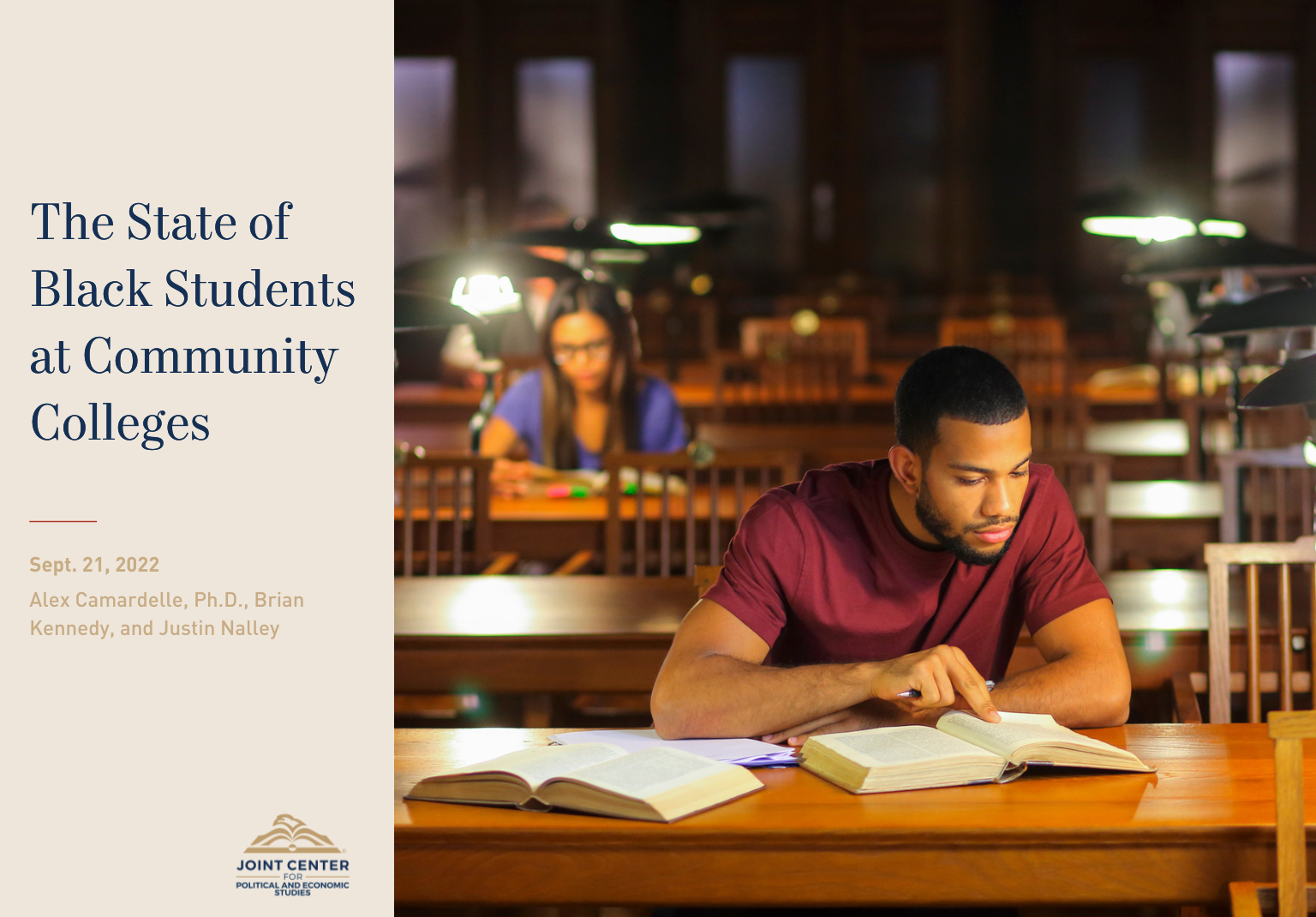Workforce Policy

This research brief, "The State of Black Students at Community Colleges," examines administrative data to describe the characteristics and select educational and economic outcomes for Black students who attended community colleges. Given the role of community colleges during economic downturns and the disproportionate enrollment of Black students, it is essential to understand how community colleges can be tools for economic recovery in the context of COVID-19 when Black adults continue to face high unemployment rates.1 From our analysis of the limited data on Black community college students, we find that while Black students are disproportionately represented at community colleges, the system does not produce equitable outcomes. Future research and policy concerning community colleges must address the barriers that prevent these institutions from serving as an equitable education solution for Black communities. Other key findings in this brief include the following:
- Despite the historic lure to community colleges during previous recessions, Black student enrollment has steadily declined over time and has worsened during the COVID-19 pandemic. From Fall 2019 to Fall 2021, enrollment fell 18 percent for all Black students and 23.5 percent and 15 percent for Black men and Black women, respectively.
- Black community college students experience the lowest graduation rates when compared to their peers of other races and ethnicities. The gap between Black and white graduation rates more than doubled from four percentage points in 2007 to 11 percentage points in 2020, the latest year data is available.
- Community colleges award Black students certificates at higher rates than other groups. In the 2019-2020 year, fewer than half (47 percent) of the awards given to Black community college completers were associate degrees, while the opposite is true for all other racial groups.
- The typical Black community college graduate earns $20,000 less per year than their classmates. White households with workers who hold a high school diploma earn $2,000 more than Black community college graduates.
- Over two-thirds (67 percent) of Black students borrowed money to pay for community college compared to 51, 36, and 30 percent of white, Hispanic, and Asian students, respectively. Black community college graduates owe 123 percent of the original amount they borrowed 12 years after beginning their community college journey.

